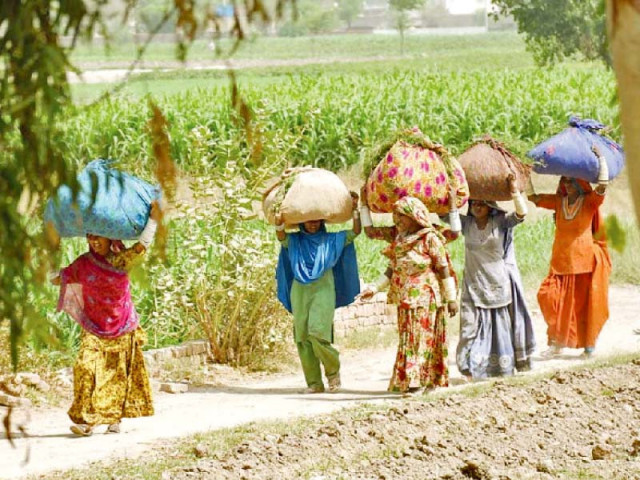‘Debt restructuring unavoidable’
Former FM says net international reserves have plunged to negative $14b

Dr Hafiz Pasha, former Finance Minister, revealed on Thursday that Pakistan’s net international reserves have plunged to a negative $14 billion, indicating that the rupee-dollar parity should be around Rs322 by the end of the fiscal year, based on one-month import cover.
Speaking at the launch of his book, “Leading Issues in the Economy of Pakistan,” Pasha expressed concern over the exchange rate projections and the country’s net international reserves. The book also highlighted that Pakistan currently has the highest unemployment rate at approximately 11% and the highest poverty rate, with over 100 million people living below the poverty line.
“When I explain that the country’s net international reserves have become negative $14 billion, my body shakes,” said the former finance minister. These reserves are calculated by excluding the one-year future liabilities from the gross official foreign exchange reserves, which currently stand at $3 billion.
In his book, Pasha projected the value of the rupee, suggesting that it should be around Rs322 per dollar based on one-month import cover. The parity could improve to Rs264 per dollar if Pakistan’s foreign exchange reserves reach 1.4 months cover of imports.
However, Finance Minister Ishaq Dar believes that based on the real effective exchange rate (REER), the rupee-dollar parity should be Rs244 to a dollar. On Thursday, the rupee closed at over Rs287 per dollar in the interbank market.
Pasha explained that achieving the parity of Rs244 per dollar would require reserves sufficient to cover nearly two and a half months of import requirements. Currently, Pakistan’s official foreign currency reserves are insufficient to meet even one month’s requirements.
He highlighted the shift from a market-based exchange rate regime to a managed exchange rate regime with the change in leadership at the Ministry of Finance.
Regarding the future outlook in the absence of an International Monetary Fund (IMF) programme, Pasha stated that the government’s only Plan B option would be to pursue external debt restructuring. He pointed out that Pakistan’s multilateral debt, which is concessional and of longer tenor, cannot be restructured. Additionally, two-thirds of Pakistan’s external bilateral debt is owed to China, and even if China agrees to reschedule the debt, significant external debt servicing would still remain, he said.
Pasha also noted the challenges of meeting the conditions set by the IMF, with tax amnesty being a major point of objection.
The launch of Hafiz Pasha’s book was funded by Germany’s leading think-tank Friedrich Ebert Stiftung (FES).
Pasha emphasised that the government still has time to revise the budget if it aims to complete the 9th review of the program.
He further elaborated on the reasons behind the economic challenges, attributing wrong economic policies as pushing the country toward default. The former finance minister expressed concern that development projects worth Rs9 trillion have remained incomplete for decades and will likely not be finished in the next 18 years. He highlighted the decline in Pakistan’s Public Sector Development Program (PSDP), which currently stands at less than 1% of GDP, compared to 3% in the past. Pakistan ranks ninth among 11 countries at high risk of default.
Pasha mentioned that the country’s annual interest cost on loans taken by state-owned enterprises amounts to Rs400 billion.
He presented alarming facts about increasing inflation and unemployment in Pakistan. He cautioned that there is a risk of food inflation rising to 53%, attributed to increased import prices and rupee devaluation, along with supply shocks caused by floods and import restrictions that contributed another 27% into inflation. He also highlighted that monetary expansion only contributed 9% to the record inflation rate, while the remaining 11% was due to rising fuel, electricity, and gas prices.
With a negative overall economic growth rate, the unemployment rate has reached 10% to 11%, surpassing even the inflation rate registered during the COVID-19 period, according to Pasha. Approximately 2.5 million individuals have become unemployed, with 19 million young men and women in Pakistan being idle, creating concerns similar to the “Arab Spring.” Among them, 11 million young females are idle in the age group of 15 to 29 years.
He revealed that the number of people living in poverty has exceeded 100 million, the highest in Pakistan’s history. He emphasised the need for Rs2.2 trillion to close the income gap, while the government has allocated only Rs450 billion for the Benazir Income Support Programme.
Pasha suggested that the government revise the trade agreements, as the balance of Pakistan-China trade heavily favours China.
Published in The Express Tribune, June 16th, 2023.
Like Business on Facebook, follow @TribuneBiz on Twitter to stay informed and join in the conversation.



















COMMENTS
Comments are moderated and generally will be posted if they are on-topic and not abusive.
For more information, please see our Comments FAQ